Certain activities, foods and supplements can help calm your body

Stress isn’t exactly in short supply these days. In fact, more than 1 in 4 adults say they’re so stressed out, they can’t even function, according to a report by the American Psychological Association.
Cleveland Clinic is a non-profit academic medical center. Advertising on our site helps support our mission. We do not endorse non-Cleveland Clinic products or services. Policy
That’s a tsunami of a stress hormone called cortisol rising and crashing in our collective systems. Just picturing that wave is … well, stressful.
But there are simple things you can do to better control your cortisol levels and keep stress-fueling surges at bay. Let’s look at your options with integrative medicine doctor Yufang Lin, MD.
Cortisol is a hormone your body produces naturally. It’s produced and released into your bloodstream by your adrenal glands. Cortisol affects nearly every organ system in your body, but its status as the “stress hormone” gives it somewhat of a bad rap.
“Cortisol supports overall health,” says Dr. Lin. “It helps us wake up in the morning, gives us energy during the day and lowers at night to help us sleep and rest.”
Problems arise when chronic stress keeps your cortisol levels elevated. High cortisol levels over weeks or months can lead to inflammation and a variety of mental and physical health issues like:
The good news? There are ways to keep your cortisol production from ramping up.
There’s a lot of information and theories about cortisol control floating around. For instance, you may have heard that you can lower cortisol levels with a nice cup of green tea or by eating dark chocolate.
Alas, it’s not quite that simple. (Is it ever?)
“Nutrition is absolutely important for coping with stress and supporting your mood, but there’s no single food that’s going to do it all,” clarifies Dr. Lin. “You have to look at your whole lifestyle to understand what factors are contributing to elevated cortisol and how you can address those factors to reduce stress.”
Let’s break it down into three categories — lifestyle choices, food and herbs/supplements.
Making changes in your day-to-day habits and activities can go a long way toward maintaining healthy cortisol levels and feeling less stressed. Dr. Lin suggested these four go-to strategies for the body and mind.
Good nutrition can make a difference in your stress levels. Research suggests that eating nutrition-rich foods with anti-inflammatory properties may calm your body and slow the production of cortisol.
The list includes:
The Mediterranean diet or other balanced eating plans that emphasize plant-based foods work well in keeping cortisol levels in check. “A healthy diet is a key part of stress management,” says Dr. Lin.
On the flip side, cortisol and stress levels may spike if you’re eating too many foods high in added sugar (cookies and cakes, for instance) or drinking soda or excessive amounts of alcohol and caffeinated beverages.
The supplement aisle at the store is hardly a one-way ticket to a stress-free life. But research shows that some herbs and natural supplements may help keep cortisol levels in a healthy range, Dr. Lin notes.
Examples include:
A word of caution, though: While some herbs might help lower cortisol levels, you don’t want to just swallow pills out of a bottle to address stress. After all, cortisol production is a response to stress and not necessarily your body’s driver of stress. So, blindly taking supplements to try to lower cortisol may not resolve the root issue behind your stress.
“If you’re thinking about trying supplements, talk to a trained provider first,” recommends Dr. Lin.
If you want to avoid supplements, consider making a stop in the tea aisle at your local market. Many herbs that reduce cortisol levels can be found in herbal teas. Examples include the herbs listed above plus chamomile, peppermint, passion flower and others.
“Take a moment to brew a cup of tea with herbs that are soothing,” suggests Dr. Lin. “Deeply breathe in the luscious aroma and wrap your hand around the warm cup. This is a wonderful way to reset your nervous system.”
When it comes to de-stressing and reducing cortisol levels, there’s no single way to get the job done.
“No one food, pill or activity can deliver you to a lasting blissful calm,” reiterates Dr. Lin. “But healthy choices can set your body up for low-stress success in the long run.”
Learn more about our editorial process.
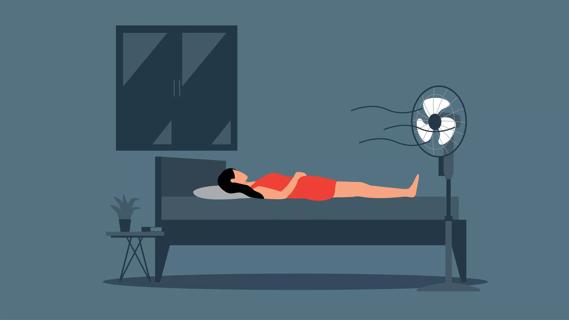
Getting to the root cause of night sweats — like menopause, medication side effects, stress or anxiety — can help you manage them

Enter relaxation mode by managing your breathing, releasing muscle tension and practicing mindfulness
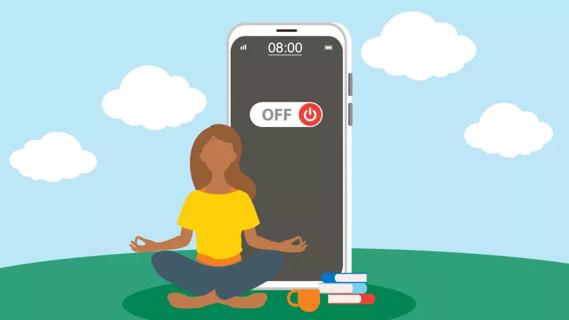
Identify your triggers, set ground rules for your break and start practicing mindfulness
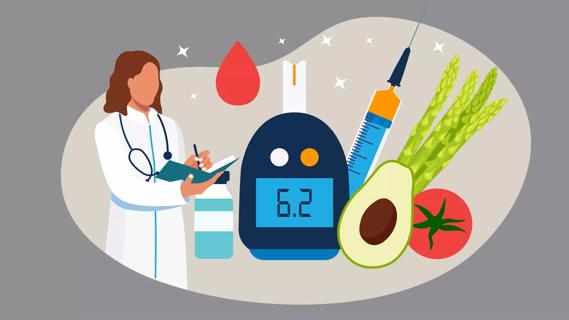
A diabetes diagnosis, new or long-standing, can trigger reactions like grief, stress, depression and frustration, but symptom relief and help are available

Too much screen time and unrealistic expectations and perceptions and can lead to an increased risk of anxiety and depression
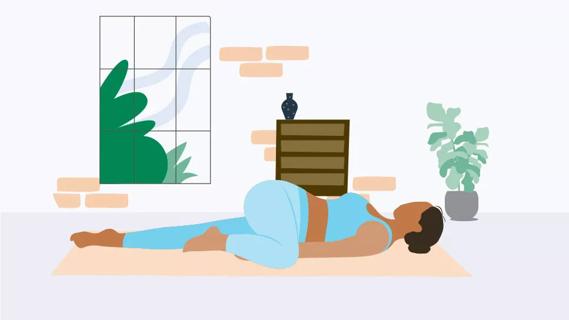
This mindful practice is designed to give you mental and physical relaxation
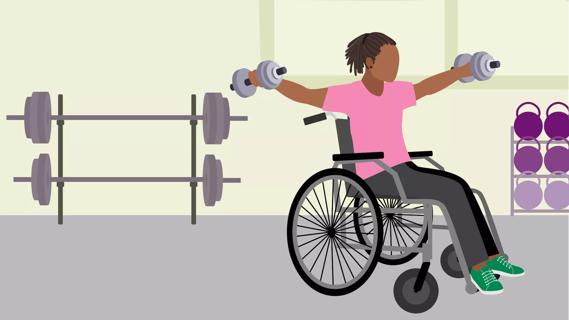
Resolve to move a little more, drink a little less, eat a little healthier, sleep a little better and destress a lot

Being the center of attention doesn’t mean you have to exile your guest stars

Your metabolism may torch 1,300 to 2,000 calories daily with no activity

A gentle touch in all the right places may help drain your sinuses